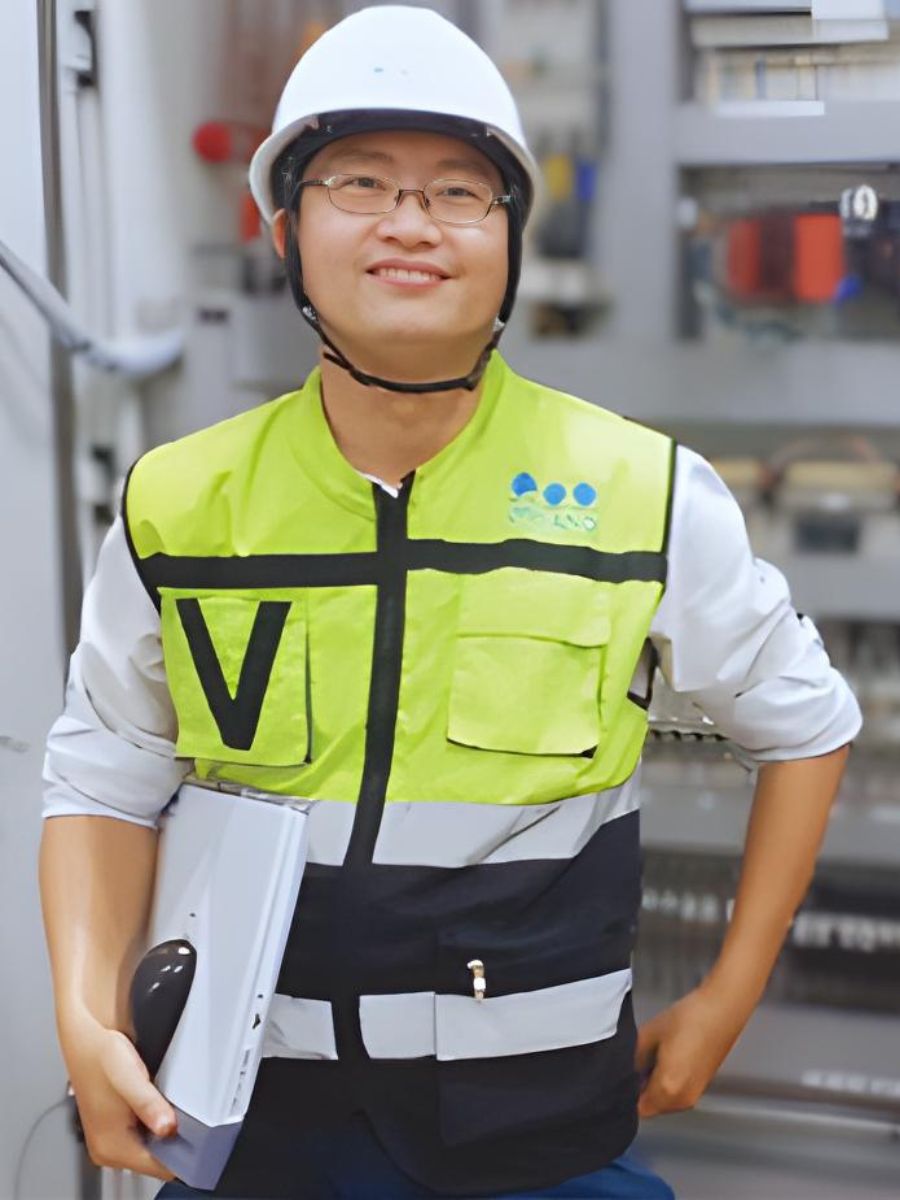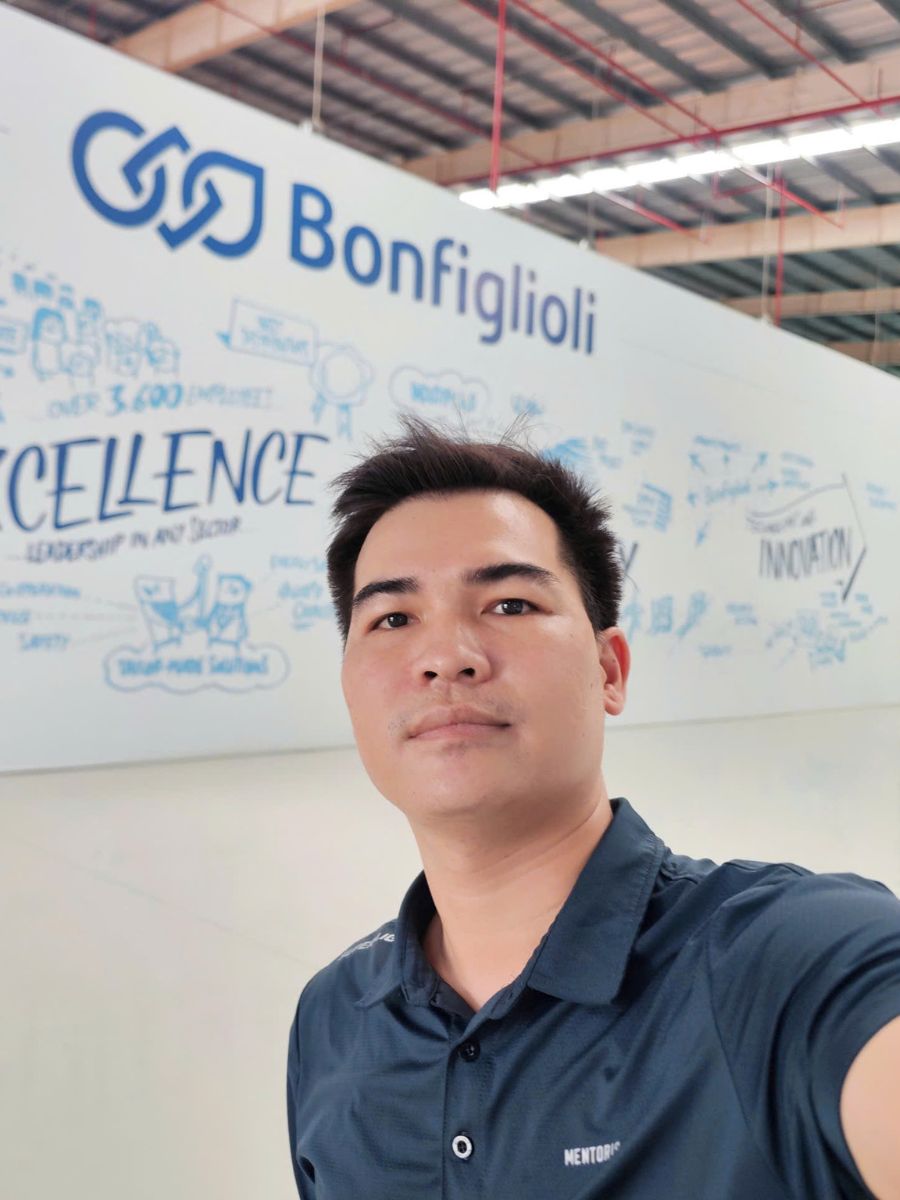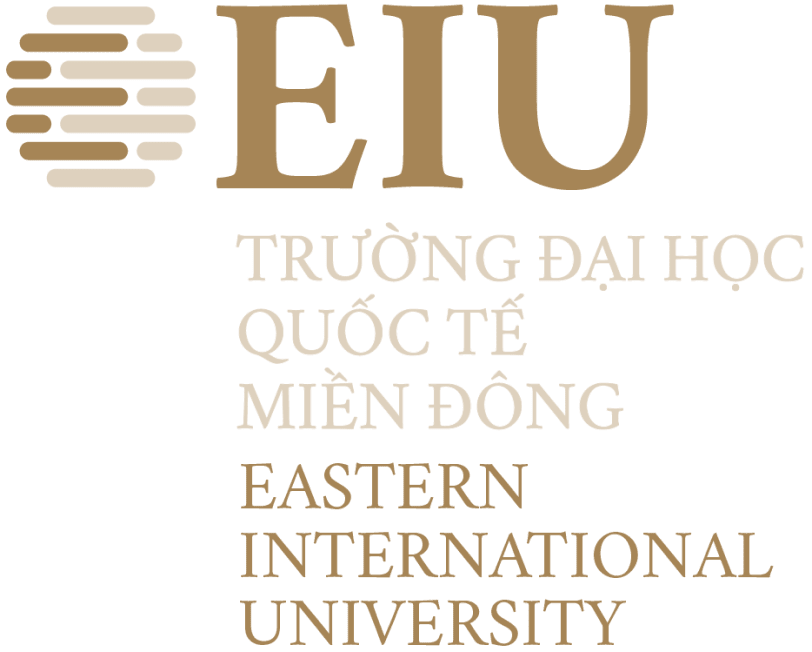Program
Mechanical Engineering
Length of time
4 years
Program code
7520103
Tuition fees
VND 27.000.000/năm*
Minimum required accumulated credits
186 credits
(quarter system – 3 semesters/year)
Introduction
4 năm
186 credits (quarter system – 3 semesters/year)
VND 27.000.000/year*
*Tuition fees are guaranteed not to increase for four years from the date of enrollment
The Mechanical Engineering program provides students with a solid foundation of engineering sciences, including mechanics, strength of materials, materials science, thermodynamics, electricity, and electronics. Among these, knowledge of design, manufacturing, and energy systems is emphasized. This knowledge enables graduates of Mechanical Engineering to design and manufacture components or entire systems; plan production processes; and manage energy utilization for machinery and mechanical/energy systems.
The Mechanical Engineering program at EIU is designed with a balance between theory and practice. Students gain practical exposure and hands-on experience through internships and industry placements. In addition, Mechanical Engineering students develop awareness of social and humanistic issues related to business, environment, government, history, language, culture, and international relations, along with professional responsibility and ethics.
Specialization tracks in Mechanical Engineering include:
Mechanical Design: Provides comprehensive knowledge of physics and engineering sciences, along with training in information synthesis, modeling skills (CAD), and computer-aided analysis (CAE) to develop creative solutions to problems in the field of mechanics. Students are trained in the design process from ideation to detailed design, selection of manufacturing processes, production planning, quality assurance, and product lifecycle management, while considering economic, health, safety, social, environmental, and community factors.
Manufacturing Engineering: Equips students with knowledge and advanced machining techniques such as CNC machining, laser cutting, 3D rapid prototyping, as well as modern measurement and inspection methods integrated into the latest manufacturing software systems. Students have opportunities to practice directly in the university’s advanced manufacturing center. They are also provided with general knowledge in design, materials, control, statistics, and professional responsibility, preparing them for digital manufacturing and enabling them to adapt to ongoing scientific and technological advancements.
Energy Systems: Provides in-depth, application-oriented knowledge to enable students to design and analyze heat transfer systems, energy conversion systems, air conditioning, and other mechanical systems involving heat and fluids. Students specializing in this track are capable of designing equipment, processes, systems, and solutions for energy absorption, conversion, distribution, and storage to meet industrial production as well as societal needs.
About the School of Engineering

Offering majors in Electrical Engineering, Mechatronics Engineering, Automation and Control Engineering, Electronics and Telecommunications Engineering, and Mechanical Engineering, the Faculty of Engineering focuses on enhancing learners’ capabilities and creating added value through highly integrated and continuously updated training programs.
PROGRAM HIGHTLIGHTS
- The curriculum is built on a foundation of general knowledge and offers specialized majors: Mechanical Design, Manufacturing Technology, and Energy Systems.
- The program is well-balanced between theory and practice, following ABET standards, competency frameworks, and the curriculum models of U.S. universities.
- The curriculum emphasizes the development of engineering design thinking and problem-solving skills for students.
- Students gain hands-on experience with modern equipment and manufacturing technologies (CNC milling and turning, EDM, laser processing, sheet metal, plastic molding, welding technology), advanced design and simulation software (AutoCAD, SolidWorks, CAD/CAM/CNC, FEM), as well as modern, highly reliable automated quality control and measurement systems.
- Students have opportunities to participate in experiential learning programs in technologically advanced countries such as the United States, Japan, South Korea, Singapore, and more.
Program learning outcomes
Upon completion of the program, students will achieve:
- PLO 1. Apply knowledge of political theory and social sciences, and understanding of law in life and professional practice; demonstrate awareness of national defense and security to foster patriotism; possess knowledge of physical self-training to improve personal health.
- PLO 2. Apply mathematics and natural science knowledge to describe and solve problems related to components, processes, and systems in the field of mechanical engineering.
- PLO 3. Apply specialized knowledge to identify, analyze, evaluate, and solve problems related to components, processes, and systems in mechanical engineering and energy.
- PLO 4. Design components, systems, and processes that meet desired technical requirements while considering constraints such as economics, environment, society, policies, ethics, health and safety, manufacturability, and sustainability.
- PLO 5. Communicate and convey information effectively and appropriately through oral, written, and multimedia formats with stakeholders in both technical and social environments; use English effectively in professional exchanges.
- PLO 6. Demonstrate the ability to work independently, collaborate in teams, and manage tasks effectively to achieve planned goals and objectives.
- PLO 7. Perform fundamental technical operations proficiently and master the use of tools, machinery, specialized equipment, and engineering software for experiments, simulations, design, manufacturing, and quality control in the field of mechanical engineering.
- PLO 8. Apply critical thinking and evaluate the quality of professional work; design and conduct experiments, analyze experimental data, and apply results effectively.
- PLO 9. Demonstrate personal and collective responsibility, professional ethics, integrity, and professionalism in technical-related situations.
- PLO 10. Plan and manage task implementation; engage in self-study and independent research; apply new knowledge when necessary; and adopt effective learning strategies.
Foreign Language Requirement: To graduate, Mechanical Engineering students must achieve a minimum English proficiency equivalent to IELTS 6.0.
Study Environment
Job Opportunities
With the advantage of an IELTS 6.0 English proficiency standard, after graduation, Mechanical Engineering graduates have the opportunity to work at foreign companies and multinational corporations (TTI, Omron, Festo, Bosch, Hyundai, GL, Posco, Colgate, Wu’s Tech, …), pursue higher education (Master’s, Doctorate) abroad, work in research institutions, or further develop their expertise and start their own business.
Career Opportunities
- Mechanical Design Engineer
- CNC Machine Operation Engineer
- QC Engineer: Product Quality Inspection
- Technical Sales Engineer
- Project Engineer
- Technical Solutions Consultant
- Production or Project Manager, or Entrepreneur
- Researcher at institutes and educational organizations
- In addition, EIU graduates with an IELTS 6.0 English standard can continue postgraduate studies (Master’s, Doctorate) abroad.
CHIA SẺ TỪ CỰU SINH VIÊN

Nguyen Quang Luc
CSV khóa: 1
Khoa: School of Engineering
Công việc hiện tại: E&IC Engineer at Organo Việt Nam
“With the knowledge and skills I gained from EIU, I feel very confident at work, and this has been clearly reflected in my current job. It took me very little time to adapt and integrate into the working environment. The experience and English proficiency I acquired have also supported me greatly in developing my career.”

Nguyen Anh Duy
CSV khóa: 1
Khoa: School of Engineering
Công việc hiện tại: Technician Supervisor at Intel Products Vietnam - SHTP HCM
“The School of Engineering is well-equipped with modern facilities, and the practice-oriented curriculum allows students to gain substantial knowledge and skills before graduation. The lecturers are enthusiastic and highly knowledgeable in their fields. Both the faculty and the university genuinely care for and support their students. The program’s practical approach provides a solid foundation that helps graduates quickly adapt and grow in the real working environment.”

Nguyen Thanh Hiep
CSV khóa: 5
Khoa: School of Engineering
Công việc hiện tại: Manufacturing Engineer at Parker Meggitt Vietnam Company
“Studying at EIU was definitely the right decision for me. What convinced me most were the modern facilities, machinery, and equipment dedicated to engineering. The learning environment at EIU gave me the opportunity to experience real working conditions through site visits and long-term internships at major engineering companies. EIU equipped me with the essential skills to become an engineer, both in terms of technical expertise and language proficiency, through continuous projects throughout my studies. I had the chance to practice a wide range of professional skills, not only in automation but also in related fields such as mechanics and electronics.”

Hoang Duc Giang
CSV khóa: 4
Khoa: School of Engineering - Control and Automation Engineering
Công việc hiện tại: Process Engineer - R&D plant support Engineer, Bonfiglioli Vietnam Co., Ltd
“In today’s era of global industrialization, the field of Engineering always requires a strong and high-quality workforce. Besides having a solid technical foundation, engineering students also need to equip themselves with essential soft skills to quickly adapt to the dynamic international business environment. I believe these are exactly the outstanding advantages that EIU engineering graduates possess. I wish you all the best in choosing your true passion and achieving great success in your career!”

























